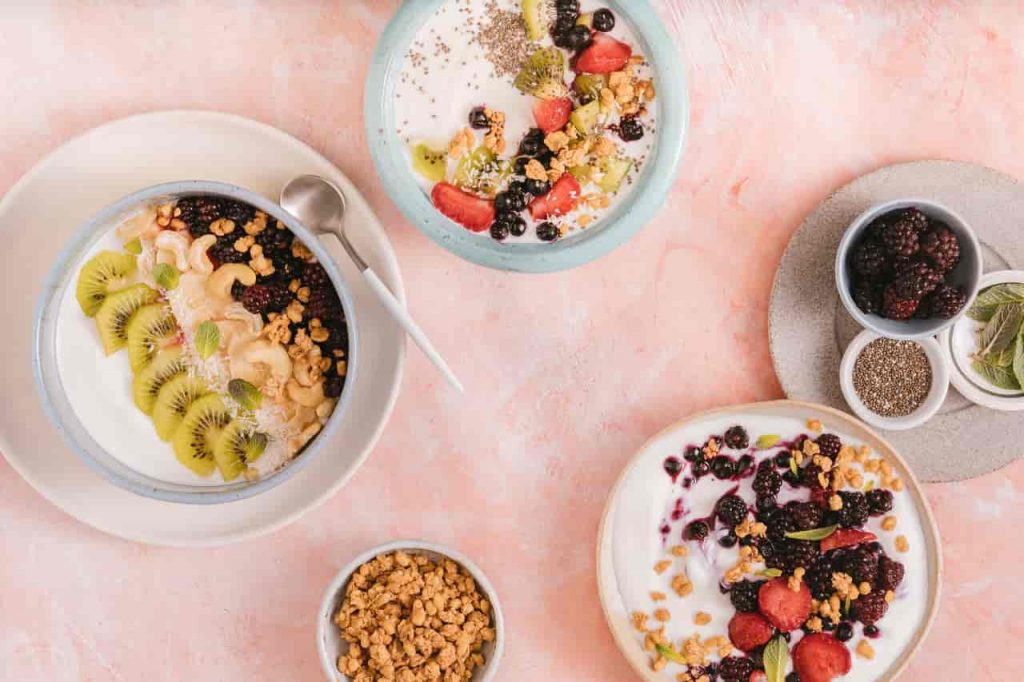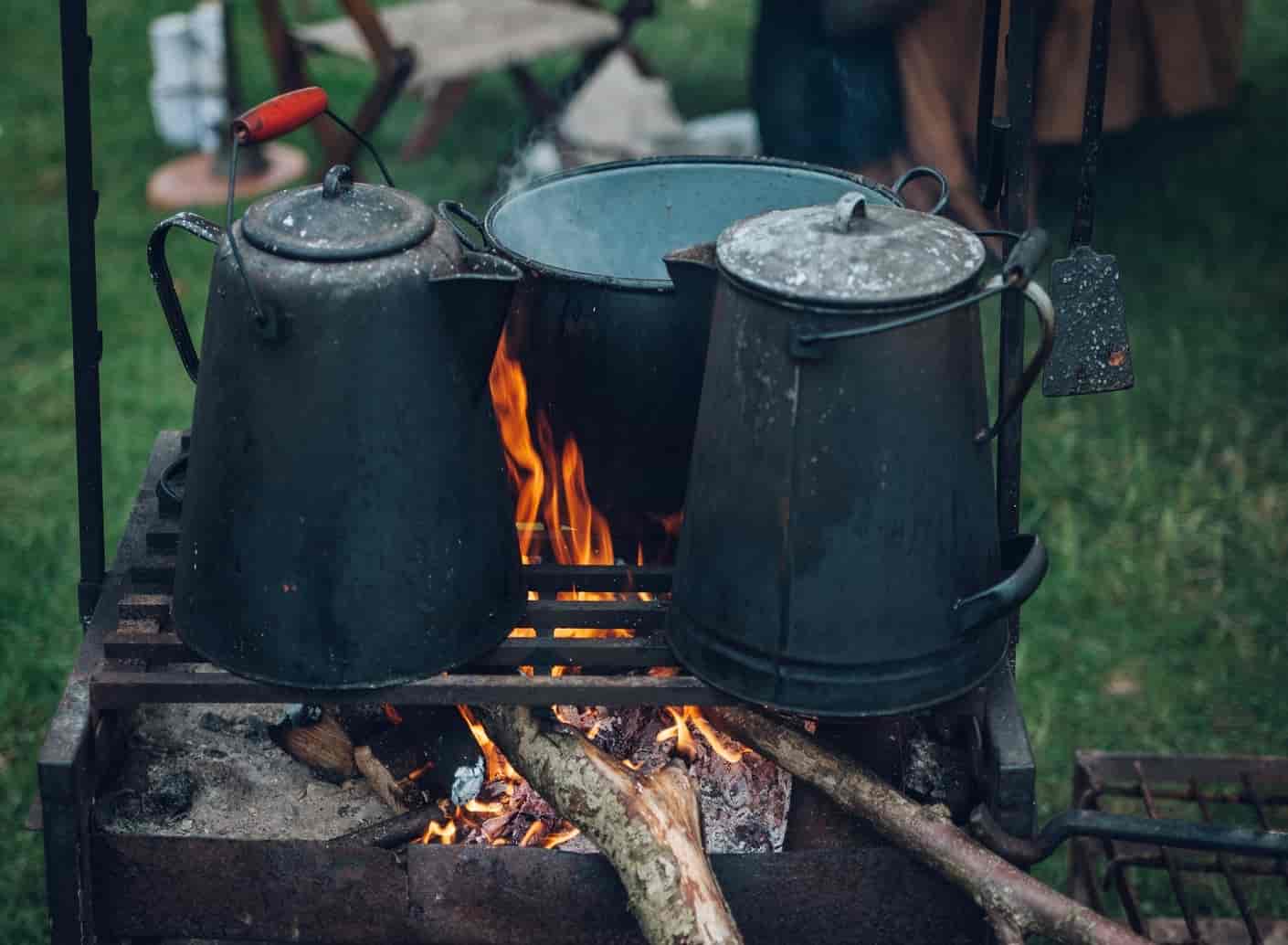Camping is fun, but you must take precautions with food safety to keep people safe from bacteria that could cause illness.
Adequate food safety practices lead to less illness while camping. Camping can be a fun, rewarding experience filled with delicious campfire treats, but it requires proper precautions and sanitary conditions. To be safe, campers should follow a few food safety rules. Keep your food at safe temperatures, properly clean surfaces, and use bottled water when brushing your teeth or disinfecting utensils and other items. Keep reading for eight Ways to Keep Your Food Safe While Camping.
Ways to Keep Your Food Safe While Camping
Here are some tips for avoiding food poisoning while camping:
Refrigerate Perishable Foods
Perishable foods should be packed and loaded into your cooler last — just before leaving for your campsite.
Ideally, your cooler should be filled with ice or frozen gel packs to keep the food at 40 degrees Fahrenheit or below.
Keep Camping Coolers Cold
Coolers should be kept in the shade with the lid closed as much as possible. And the cooler should never sit in direct sunlight, even for a short time.
The temperature of a fully filled cooler will remain cool for a longer period of time than a partially filled cooler. So, pack it with lots of ice and consider freezing water bottles to help keep everything cold.
Pack Separate Coolers for Raw Meat and Other Foods
It’s worth taking the time to pack more than one cooler when you’re camping. Whether you’re bringing a cooler packed with cold drinks or one packed with food, it’s important to keep raw meat away from ready-to-eat foods and beverages. If there are separate coolers, you won’t have to worry about juices leaking onto other foods in the same cooler. You can also designate one cooler as a waste cooler for fish guts and other items that should not be mixed with other foods.
Food Safe with a Tent or Shade
Food can spoil quickly when it’s sitting out in the hot sun; even if it’s in a cooler, direct sunlight can heat the contents of the cooler quickly. Try to find some shade or set up a tent to protect your food from the sun during the day, so it doesn’t spoil. There are also tents available that can protect your coolers from wildlife.
Wash Hands and Surfaces Often
It’s especially important if you’re cooking with raw meat or poultry. After handling these foods, wash your hands with soap and clean water, then launder any towels or sponges used to clean up.
Clean and Manage Raw Meat Well
Some campers like to prepare raw meat at their campsite and then cook it later. Since you don’t want to leave raw meat sitting out for long periods, this means that you’ll need a cooler with ice packs (or dry ice) to keep the food cold until it’s ready for cooking.
If you do this, make sure that any meat juices don’t get on other foods — these can spread bacteria if they drip onto your cooking equipment or other food items. And remember that every time you open the cooler lid, some cold air will escape, and some warm air will rush in, so try to limit how often you open it.
Cook Foods to Safe Temperatures
It’s important to cook your meats thoroughly to kill off any bacteria that might be lurking inside. Take a food thermometer with you while camping so you can be sure the meat is cooked through. Make sure that the temperature gets high enough according to these guidelines:
- Ground meat and meat mixtures: 160 beef, pork, veal, and lamb (steaks, roasts, and chops): 145 F with a 3-minute rest time.
- Seafood: 145 F
- Whole cuts of beef, pork, veal, and lamb: 145 F with a 3-minute rest time.
- Poultry: 165 F
- Leftovers: 165 F
Serve Food on Clean Plates
Some microorganisms that make people sick can be carried on dirty serving dishes and utensils. Ensure to wash dishes in hot, soapy water (140°F (60°C) or above) after each use.
If you don’t own a dishwasher, use disposable plates and platters, or have enough plates so you can wash them while the party is going on.
Why Is Food Safety Important

Food safety is important because it helps prevent people from getting sick. Foodborne illnesses are a common, costly — yet preventable — public health problem.
The consequences of eating contaminated food can be very serious. You could get sick or even die from eating food that has germs in it. The symptoms of these illnesses can vary from mild to severe, but the main thing is that they are unpleasant and prevent you from enjoying your food.
Children, older people, and weak immune systems are more vulnerable to foodborne illnesses than healthy adults.
We all want to enjoy our food, knowing it is safe and will not cause us any harm. So why not learn more about food safety? Following the food safety guidelines is essential to protecting yourself, your family, and other people from an outbreak of illness caused by contaminated foods.
Final Thoughts: Food Safe
So while you are preparing your food, remember to keep cleanliness, heat, and perishables separate. Also, use a food thermometer to ensure that the food is cooked thoroughly. And remember, if you are not sure about a campsite’s water source or general conditions, then boil it first.
